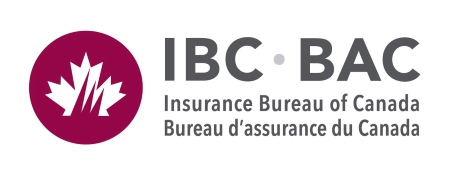IBC asks public to help "put the staged car accident business out of business": Recognize and report car insurance fraud Français
TORONTO, March 4, 2014 /CNW/ - Swoop and squat. Drive down. Imaginary accidents. These are just some of the car insurance scams that criminals commit to rip off insurers and honest Canadians.
As Fraud Prevention Month rolls out across the country in March, Insurance Bureau of Canada (IBC) urges the public to help crack down on "the staged car accident business" by reporting suspected insurance fraud.
All Canadians pay for car insurance fraud. In Ontario alone, such fraud adds an estimated $1.6 billion a year to insurance premiums and health care, emergency services and court costs. Insurance criminals take money right out of our pockets – when they cheat, we all pay.
"Auto insurance fraud is costly, threatens the safety and security of drivers, cheats honest policyholders and erodes confidence in the insurance industry," says Rick Dubin, IBC's Vice-President of Investigative Services. "Car insurance fraud is often the work of organized groups who steal cars for sale to unsuspecting consumers or stage collisions and then file fraudulent injury claims. Or it is the work of unscrupulous auto body shops that intentionally cause additional damage to vehicles they are repairing or the work of medical clinics that bill insurers for services that were never rendered. But fraud also includes otherwise law-abiding citizens who pad a legitimate claim," he adds.
Dubin heads up IBC's national investigative team that focuses on organized crime rings, specifically those involved in auto theft or fraudulent injury and accident benefit claims. IBC also partners with law enforcement, government agencies and insurance companies across the country to identify, investigate and prosecute suspected insurance crime to bring criminals to justice.
Recognize fraud – watch for:
- Staged collisions: A driver intentionally causes a collision by targeting an innocent driver, then makes it look as if the innocent driver is at fault for the collision. The first driver then files false auto insurance claims to collect generous accident benefits. Click on the link for examples of staged collisions: http://getintheknow.ibc.ca/Blog/2013/March-2013/Staged-Collisions-types-and-tips.aspx
- Unscrupulous auto repair shops: This crime involves a repair shop intentionally causing damage to a vehicle that has been in an accident.
- False medical claims: In this scam, medical clinics ask claimants to sign blank accident benefit forms (i.e., assessment and treatment plans). The clinics then forge the signatures of legitimate medical practitioners, add false information about the claimant's treatment and bill insurers for services never rendered.
- Dishonest individuals: These people change the vehicle identification number (VIN) on a car that has been stolen or previously damaged to hide its history, then privately sell the vehicle to an unsuspecting buyer. One way to protect yourself is to obtain a history on the vehicle Identification number through Carfax or Carproof as well as having it inspected by a good mechanic. IBC recommends purchasing a vehicle from a reputable dealership.
- Fake auto theft: An individual arranges for his or her vehicle to be stolen, then makes a claim for the stolen vehicle.
- Padding claims: This occurs when a normally law-abiding person sees an opportunity to make a few extra dollars by exaggerating injuries as part of an otherwise legitimate insurance claim.
Protect yourself:
To avoid a staged collision:
- Never tailgate; allow ample time to stop if the driver ahead of you suddenly jams on its brakes.
- Look beyond the car in front of you while driving. Apply your brakes if you see traffic slowing.
If you're involved in a collision:
- Immediately report it to your insurance representative, who will be able to recommend a reliable auto body repair facility that will provide quality repairs.
- If you suspect the collision may have been staged, immediately report the incident to the police and your insurance company. You should also call IBC's toll-free TIPS Line at 1-877-IBC-TIPS.
If you go to a medical clinic for treatment after a collision:
- Never sign blank forms.
Report exaggerated claims, staged auto collisions and other crimes related to insurance by calling IBC's anonymous, toll-free TIPS Line at 1-877-IBC-TIPS (422-8477) or submit a tip at www.ibc.ca under Report Insurance Crime. IBC investigators take all tips seriously, no matter how large or small.
About Insurance Bureau of Canada
Insurance Bureau of Canada (IBC) is pleased to celebrate 50 years as a valuable resource for insurance information. Since 1964, IBC has been working with governments across Canada to make communities safer, championing issues that directly affect Canadians and the property and casualty (P&C) insurance industry. IBC is the national industry association representing Canada's private home, car and business insurers. Its member companies represent 90% of the P&C insurance market in Canada. The P&C insurance industry employs over 118,600 Canadians, pays more than $7 billion in taxes to the federal, provincial and municipal governments, and has a total premium base of $46 billion.
To view media releases and other information, visit the media section of IBC's website at www.ibc.ca. Follow IBC on Twitter @InsuranceBureau or like us on Facebook.
SOURCE: Insurance Bureau of Canada

If you require more information, IBC spokespeople are available to discuss the details in this media release. To schedule an interview, please contact: Ellen Woodger, Communications Consultant, Insurance Bureau of Canada, 416-483-2358, [email protected]; Helen Lialias, Media Relations Officer, 416-362-2031 ext. 4312, [email protected]

Share this article